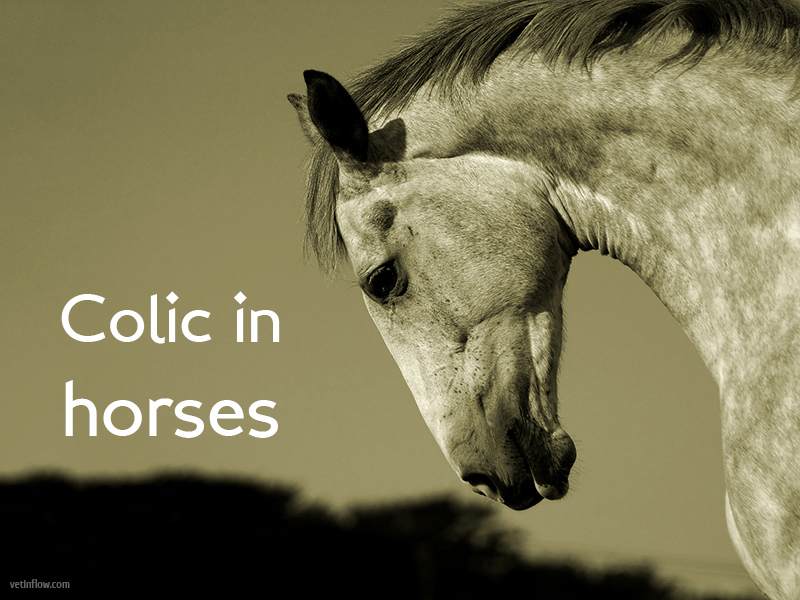
Colic in horses

Colic is still one of the most common causes of death in horses despite all advances in Veterinary Medicine. The term colic is not referred to a specific disease, it is used to describe a very generic symptom: abdominal pain (pain in the belly).
There are many different types of intestinal problems that can cause abdominal pain: overload of internal parasites; abnormal spasms of the intestinal wall that cause discomfort; impactions, when the intestine is blocked by a firm mass of food; bowl displacements, when a section of the bowel moves to an abnormal location within the abdomen; bowl strangulations, when a portion of the intestine becomes entrapped somewhere in the abdomen; torsions, when the bowl twists on itself and even when the gut wall is stretched by gas or feed material. Sometimes it is not possible to determine what is causing the symptom.
Clinical signs of colic can vary from mild to severe. In mild cases signs include: restlessness, pawing the ground repeatedly with a front foot, turning the head towards the flank, arching of the neck and curling the upper lip.
In moderate and severe cases horses will typically display kicking or biting at the abdomen, loss of appetite, depression, decreased bowel movements, lying down more than usual, getting up and lying down repeatedly, stretching out as if to urinate, straining to defecate, sitting down like a dog, sweating and rolling from side to side.
Intestinal problems can range from mild to life-threatening or fatal. For this reason it is very important to take these symptoms seriously and seek veterinary assistance. Early diagnose and early treatment is essential for a positive outcome. If you think your horse is showing signs of colic please contact your veterinary surgeon.
Would you like to know more about horses? Check our Equine Courses:
Equine courses
Read the previous article: Benefits of microchipping your pet

